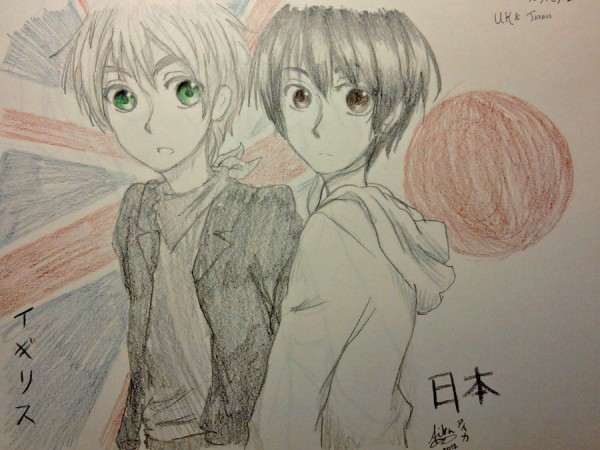There are times when the people I speak to smile a knowing smile, lean their head to a slight angle and utter the word shimaguni. It is a word that seems to embody far more than its literal meaning. It is as if it encapsulates a single notion with such ease that it leads the speaker as a matter of course to delivering it with peculiar alacrity.
This one word sums up everything you wish to know about Japan and reinforces that which we all know to be true. That Japan is utterly unique. Japan is special and different and home to myriad traditions bathed in foggy mystery. More so than any other nation it is an us that has remained almost completely unblemished by the influence of them.
And it is utter and total nonsense.
Japan is fascinating.It really is. It is interesting. The people by and large are kind and hard working. The food is fantastic. And looking out my window on a sunny day I remain stunned by the natural beauty of the country in which I live.
And much the same could be said for any other island nation. Because that is what shimaguni means. Island nation.
But that’s never the whole truth of the matter. An island nation has rarely ever truly been totally cut off from the outside world.
Granted, Japan imposed isolation upon itself in the past. When trading with the outside it did its best to keep Japan apart from the world at large, placing the Dutch on Dejima and placing strict restrictions on other nations and the Japanese themselves in regards to trade and probably most importantly in this regard, the promulgation of religion. Yet, even during this period the Tokugawa were regularly visited by Korean delegations, though they never made the return journey. This was far from the total isolation needed to genuinely insulate a culture.
So when those barriers were finally torn down by American pressure, when the Black ships sailed into Edo Bay followed years later by the first American consul in Shimoda, Japan not only embraced the world but chased it down with cries of Wakon Yosai! Japan attempted to learn everything it could from the world and then marry it to their own cultural identity and in many cases they succeed in doing so to this day.
Japan doesn’t need to be unique in every single feature of its culture and heritage in order to be worthy of respect. Nor do the points where we disagree need to be met with a wave of the hand (any hand) that dismisses these points as being examples of how the outside world cannot begin to fathom the Japanese as if they were some homogenous, indistinguishable singular notion.
Recently a colleague of mine lent me an English language book on Japanese culture that had been used as a textbook at her university. She described it as being generally accurate if at times, “overthought.” Wanting to return the favour I picked up a copy of ‘Watching the English’, a book an American friend of mine had recommended to me years ago and found this in the back.
Perhaps it’s time to widen the definition of Shimaguni.

Matt Keighley was born in New Jersey, raised in Yorkshire, and is now living in Japan. He is a freelance writer and English Language Teacher currently based in Nagano Prefecture, Japan. His most recent work, aside from the blog, can be found in the soon to be released The High on Life Book, a collection of inspiring tales from young leaders around the globe. Earlier work can be found predominantly on the BBC Radio Leicester website where he was a guest contributor for a number of years while studying for an English degree at the University of Leicester.
Following three years of indulging my passion for literature, he ventured a little further south to dive into the world of politics, economics and other subjects of that particular ilk at University College London. While in the capital, he did some work for the Canadian based charity End Poverty Now and even contributed scenes to a Dr. Seuss inspired nativity play.










